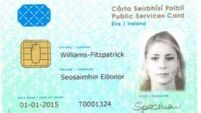Teachers: Claims of ‘knowledge economy’ are hypocritical
The Teachers’ Union of Ireland (TUI) is likely to upgrade its campaign for laboratory technicians for schools arising from a number of motions at its annual congress in Kilkenny next week.
The appointment of such staff to second-level schools was among the recommendations of the 2002 report of the Task Force on Physical Sciences commissioned by the Government.













